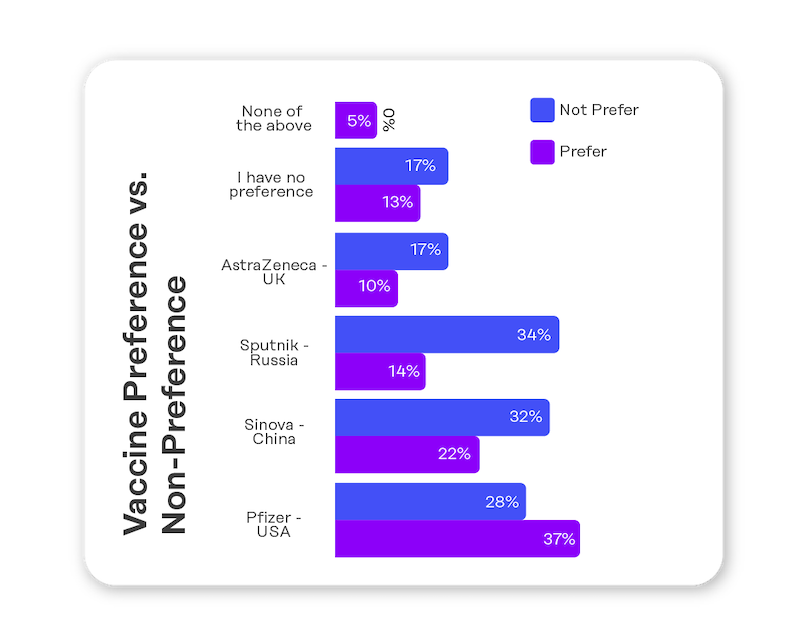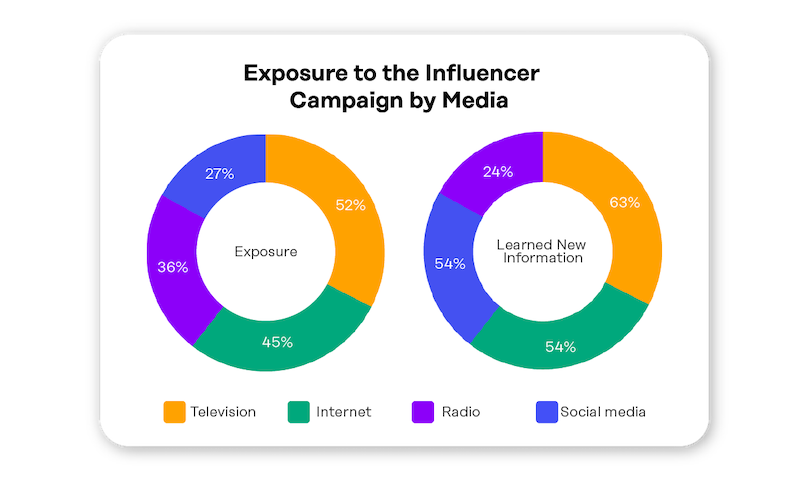Challenge
The IBTCI Monitoring and Evaluation for the Tunisia and Libya (METAL) Activity provided technical assistance in support of USAID’s strategic goals and development objectives in Tunisia and Libya by assisting its efforts to gain and apply knowledge derived from monitoring and evaluation. In July 2020, IBTCI/METAL needed to assess USAID/Tunisia’s COVID-19 activities—including a national media campaign to educate the public regarding COVID-19 protection measures and a hotline providing counseling services to individuals facing COVID-19-related challenges—to gauge exposure during the campaign and evaluate campaign effectiveness.
Solution
Premise engaged its data Contributor network across the 24 governorates of Tunisia to complete various COVID-19 surveys via the Premise smartphone app. The survey questionnaires were designed to gauge exposure to and intention for change of behavior as a result of specific messaging campaigns, as well as the awareness of the public hotline. Contributors were asked to report on:
- Awareness and effectiveness of certain social media/influencer and other public service campaigns related to COVID-19
- Engagement with preventative behaviors against COVID-19
- Sentiment towards the COVID-19 vaccine
- Awareness and use of the COVID-19 hotline available throughout Tunisia
Two rounds of data were collected over the course of six months in order to observe changes over time regarding COVID-19-related behavior and awareness, as well as to quickly detect if the campaigns needed to be adjusted mid-implementation. A total of 1,632 responses were collected during each round of data collection to ensure a nationally representative sample.

Findings
Contributor responses from the COVID-19 surveys provided valuable insights to the METAL team as they worked to assess USAID Tunisia’s COVID-19-related activities. For example, the results showed that public awareness messaging on COVID-19 had the highest reach via television and internet, however, social media had the biggest impact in terms of behavior change. It was also determined that celebrities and influencers have a positive effect on message receptivity. Responses also showed that while mask wearing declined precipitously between the first and second rounds of data collection, likeliness to get the vaccine increased, showing a shift in protective behaviors among the general population. Type and location of origin of the vaccine also impacted people’s sentiments towards receiving it.
“Some of the most striking findings of the surveys were the high level of awareness of the USAID-supported programming, changes in mask wearing and attitudes towards vaccinations over time, as well as awareness and usage of the hotline.” — METAL Whole of Activity Report

Implications
Equipped with these observations, IBTCI/METAL was able to:
- Understand the most effective mediums and messengers for communicating COVID-19 awareness information and assess campaign reach.
- Gain insight into the differences in COVID-19 knowledge and perception by governorate, gender, and geography for a more nuanced understanding of areas of focus.
- Become more aware of vaccine readiness across the country and prepare for the possible impacts of misinformation by monitoring changes in attitudes, behaviors, and social media norms over time.
- Rapidly detect any necessary adjustments to campaigns mid-implementation in order to increase public trust around immunization.